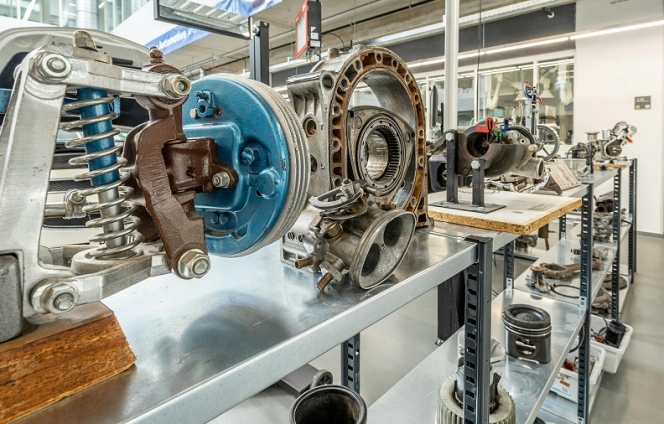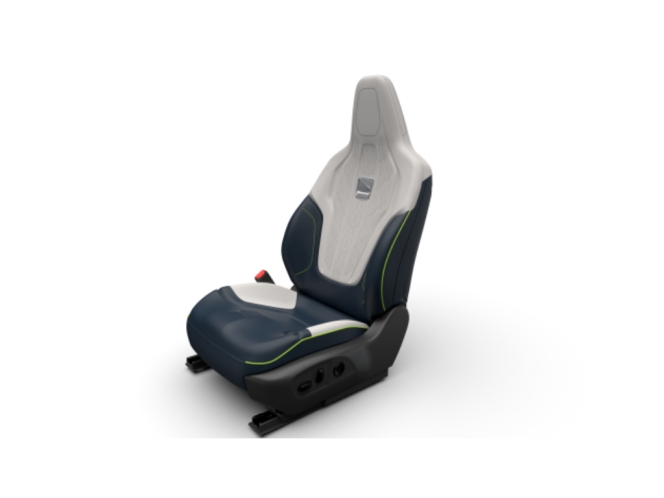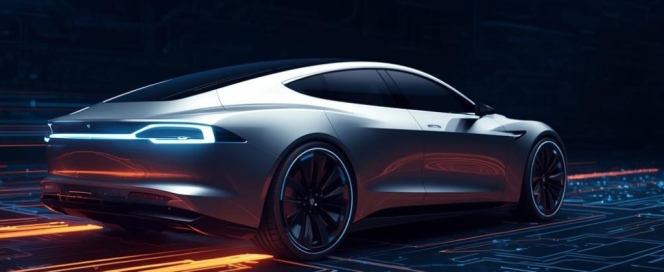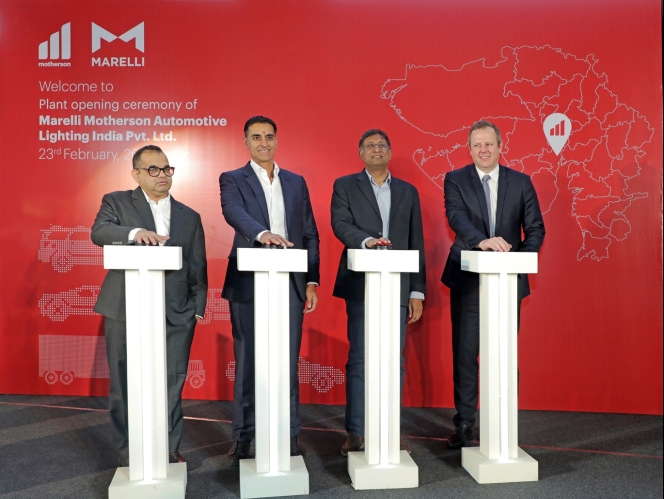Indian Auto Market Continues To Stand Tall Believes ACMA
- By MT Bureau
- July 08, 2025

The Indian automotive component industry clocked USD 80.2 billion in turnover in FY2025, which translates to 9.6 percent growth over USD 74.1 billion in FY2024 revealed by data from the Automotive Component Manufacturers Association (ACMA).
Interestingly, the domestic component industry was able to further widen its trade surplus to USD 453 million, as against USD 300 million last year, with exports growing at 8 percent, while imports grew by 7.3 percent. The industry believes that despite global challenges, the Indian automotive industry continues to stand tall and is further expected to continue its growth momentum across segments.
As per the data, the industry grew at a CAGR of 14 percent from FY2020 to FY2025, which translates to almost doubling the size in the past five-year period.
Vinnie Mehta, Director General, ACMA said, “The Indian auto component industry continues to exhibit remarkable resilience and growth. With OEM sales, exports and the aftermarket segments all growing positively.”
The Indian automotive industry primarily driven by passenger vehicle segment enabled the component industry to gain volumes, which now account for almost 43 percent of the total component sales to OEMs, followed by commercial vehicle at 25 percent and two-wheelers at 20 percent, among others.
Shradha Suri Marwah, President, ACMA & CMD, Subros, said, “The Indian auto component sector continues to be a cornerstone of the country’s manufacturing prowess. FY2025 was yet another milestone year where the industry’s growth was underpinned by strong domestic demand, rising exports, and increasing value addition. As India transitions towards new-age mobility, our industry is making the necessary strides in investments, technology and localisation to serve both domestic and global markets effectively.”
“The fiscal year witnessed broad-based growth and recovery across segments. While two-wheelers demonstrated robust growth, the passenger vehicle and commercial vehicle segments experienced steady, albeit moderate, momentum. On the exports front, ongoing geopolitical challenges have led to supply-chain challenges. Nevertheless, the industry continues to show remarkable resilience and remains in robust health. Investments in higher value-addition, technology upgradation and localisation are being accelerated to align with evolving customer expectations and global supply chain dynamics. However, the limited availability of rare-earth magnets remains a concern, underscoring the need for a national strategy on critical materials to secure the future of EV and mobility manufacturing in India,” added Marwah.
Exports & Imports
Coming to the exports, the auto component industry clocked USD 22.9 billion worth of exports, up 8 percent YoY, while imports came at USD 22.4 billion, up 7 percent YoY.
Engine components and Drive Transmission and Steering, remain the dominant segment, accounting for more than half of exports. While, Steering and Engine, remained the two dominant segments in imports, accounting for 57 percent of the total imports.
North America (USD 7.3 billion), followed by Europe (USD 6.74 billion) and Asia (USD 5.92 billion) were the top three export markets, which saw growth of 8.4 percent, -2.1 percent and 15.1 percent YoY respectively.
Coming to imports, Asia primarily driven by China (USD 14.91 billion), Europe (USD 5.77 billion) and North America (USD 1.65 billion) were the top three markets, which grew by 8.6 percent, 6.8 percent and 1.3 percent YoY respectively.
Aftermarket
The report found that the expansion of the automotive aftermarket was primarily driven by rising vehicle usage for both personal and commercial vehicles, with the growth being fuelled rural development in entry-level segments, shifting preference for larger vehicles and the increasing shift towards formal repair and maintenance market.
Tailwinds and Headwinds
The apex component body believes that India continues to be a key growth market globally, especially for the automotive industry with largely stable domestic demand, exports, infrastructure development, investments & capacity expansion, government push towards clean mobility and new entrants in the mobility space.
On the other hand, rising geopolitical challenges, increasing freight costs, available of rare earth magnets, raw materials price volatility and high GST on auto components could be a dampener.
Representational image courtesy: Mike van Schoonderwalt/Pexels
Adient Introduces Sculpted Soft Trim Technology For Automotive Seating
- By MT Bureau
- February 26, 2026

Adient, a supplier of automotive seating, has launched Sculpted Soft Trim, a manufacturing technology designed to provide new design options for vehicle interiors. The product is a breathable, formed trim solution that can be applied to large panels or components such as armrests, headrests and child seat anchor covers.
The technology uses an automated forming process to create shapes, reducing the requirement for traditional manual sewing. This method allows for the creation of concave surfaces and 3D shapes that were previously difficult to execute using standard cut-and-sew techniques.
Sculpted Soft Trim is designed to improve craftsmanship while lowering labour requirements. In applications such as rear seat child anchor locations, the system can replace up to twelve individual patterns and sew lines with a single formed component.
Key features of the technology include:
- Material Compatibility: Support for a range of fabrics and vinyl materials.
- Surface Detail: Capability to achieve 3-dimensional concavity without losing grain detail.
- Customisation: Ability to add embossed or debossed textures, graphics and badging within the same tooling process.
- Material Integration: Facility to pre-sew and form dissimilar materials together.
- Firmness Control: Variable firmness options to meet specific application requirements.
Adient has confirmed that Sculpted Soft Trim is available globally. The technology is scheduled to enter production on vehicles from several original equipment manufacturers (OEMs) during 2026. According to the company, the process reduces cycle times by approximately 50 percent compared to traditional forming methods.
Mike Maddelein, Vice-President of engineering in the Americas, Adient, said, “Sculpted Soft Trim fundamentally changes what’s possible in seat trim design by combining premium aesthetics with meaningful manufacturing efficiency. With cycle times reduced to roughly 50 percent of traditional forming methods, this technology delivers both speed and quality. In addition, decorative sewing, quilting and embossed or debossed features introduce another level of specialisation, all executed with tight tolerance control to ensure consistent, high-end craftsmanship at scale.”
Dhoot Transmission, FourFront Join Forces For Integrated Electronics & Electrical Manufacturing Platform
- By MT Bureau
- February 24, 2026

Dhoot Transmission, backed by Bain Capital, has announced a partnership and merger with Pune-based FourFront. Under the agreement, FourFront will merge with a subsidiary of Dhoot Transmission to create an integrated automotive electronics and electrical manufacturing platform.
FourFront is a Tier-1 supplier providing electro-mechanical and electronic solutions to passenger and commercial vehicle manufacturers. The merger is intended to address the increasing electronics content in vehicles and the requirements of the electric vehicle (EV) sector.
The combined entity will leverage complementary capabilities in manufacturing and engineering. FourFront’s portfolio includes:
- Power Electronics: Components for voltage conversion and management in EVs.
- Electromechanical Switches: Interface solutions for vehicle cabins and systems.
- EV Products: Specialised hardware for electric drivetrains.
The platform aims to provide end-to-end solutions for original equipment manufacturers (OEMs) across internal combustion engine and electric vehicle programmes. Bain Capital will provide global automotive expertise to support the scale of the platform and the adoption of technologies such as Advanced Driver Assistance Systems (ADAS).
Rahul Dhoot, Managing Director, Dhoot Transmission Group, said, “This partnership is closely aligned with our strategy of building a differentiated automotive platform with strong capabilities in electronics and electrical systems. FourFront has developed trusted relationships with OEM customers and built meaningful expertise in power electronics. As part of the Dhoot platform, FourFront and its team will be well positioned to continue delivering the same level of quality and service levels to customers while benefiting from our scale, manufacturing depth, and long-term investment approach.”
Saahil Bhatia, Partner, Bain Capital, said, “India continues to be an economy with a strong long-term growth trajectory, supported by favourable demographics, rising domestic consumption, and sustained investment in manufacturing and infrastructure. Against this backdrop, we see a compelling opportunity to support platforms like Dhoot, and now FourFront, as they scale capabilities, deepen OEM partnerships, and build high-quality automotive solutions aligned with evolving technologies such as ADAS and increasing electronics content across vehicle segments.”
Shrikant Neurgaonkar, Chairperson and Managing Director, FourFront, stated, “Over the last 15+ years, FourFront has built very a strong foundation and is recognised for innovative solutions, superior design capabilities, and responsiveness towards customer demands. The partnership with Dhoot Transmission and Bain Capital will put us in a strong position to further enhance our product offerings and continue to invest in manufacturing facilities, R&D and people for the next phase of growth. We’re very excited to partner with Dhoot Transmission to create an electronics platform focused on technical and operational excellence.”
Marelli And Motherson Open Automotive Lighting Plant In Sanand
- By MT Bureau
- February 23, 2026

Marelli and its joint venture partner Motherson have inaugurated a manufacturing facility for automotive lighting in Sanand, Gujarat. This plant is the second facility for the Marelli Motherson Lighting India (MMLI) joint venture in the region and increases Marelli’s total footprint in India to 16 production sites and three R&D centres.
The facility focuses on exterior lighting systems for the passenger vehicle market. It introduces several technologies to India, including the production of single-piece lamps that span the full width of a vehicle. These components create light signatures up to two metres in length for the front and rear of cars.
The plant localises the production of headlamp modules with a height of 17 millimetres. These modules can be configured with adaptive driving beam (ADB), high-beam boost, or ambient lighting.
To manufacture these large lighting elements, the facility has been equipped with high-tonnage injection moulding machines. The building structure includes overhead cranes specifically designed for heavy tooling, a first for a lighting plant in India.
The Sanand site incorporates rooftop solar installations and plans to source further energy through open-access green power. As part of its corporate social responsibility, MMLI has planted 1,700 trees in the surrounding area to assist with carbon absorption.
Established in 2008, MMLI is a 50:50 joint venture that employs over 4,500 people. It operates eight plants across Pune, Sanand, Bawal, and Noida, supported by a design centre and a PCB production facility.
Frank Huber, President, Marelli’s Lighting business, said, “Our new facility in Sanand is a key milestone in bringing advanced lighting technologies to our customers in India. Together with our partner Motherson, we are uniting global innovation with strong local manufacturing capabilities to deliver cutting-edge solutions for the Indian market. Our joint venture continues to be a great success — built on Marelli’s global technology leadership, Motherson’s great infrastructure, execution excellence and deep customer relationships on the subcontinent, and the significant autonomy both partners have entrusted to the MMLI team since its establishment in 2008.”
Laksh Vaaman Sehgal, Vice-Chairman, Motherson, stated, “The inauguration of our cutting-edge automotive lighting plant underscores Motherson’s unwavering commitment to innovation, excellence, and customer-centricity. This strategic investment strengthens our ability to deliver advanced, future-ready lighting solutions while meeting the evolving needs of our customers. We deeply appreciate the trust and support of our customers, which has been instrumental in achieving this significant milestone.”
Garrett Motion Secures First Serial Award For Centrifugal Compressor From China's Cling
- By MT Bureau
- February 22, 2026

Garrett Motion has announced its first serial award for a centrifugal compressor from Chinese automotive company Cling, which involves the integration of Garrett’s oil-free, foil bearing-based technology into next-generation HVAC systems for electric buses and trucks.
Production is scheduled to commence in 2027. The technology was validated through joint testing between the two companies throughout 2025.
The Garrett centrifugal compressor utilises a high-speed motor exceeding 160,000 RPM. Compared to traditional scroll compressors, the system is 50 percent smaller, 30 percent lighter and reduces noise levels by a claimed 10 dB.
Key technical features include:
- Voltage Support: Compatible with 400V–800V heat pump systems.
- Maintenance: Oil-free design offering up to 45,000 hours of maintenance-free operation.
- Refrigerants: Supports low-pressure and low-GWP (Global Warming Potential) refrigerants.
- Thermal Performance: Designed to enhance cooling capacity and energy performance to extend vehicle range.
The partnership aims to establish new standards for thermal management in the commercial vehicle segment. The compressor architecture is designed for automotive-grade production and is scalable for both EV deployment and industrial applications.
Olivier Rabiller, President and CEO, Garrett Motion, said, “This collaboration brings Garrett’s cutting-edge centrifugal cooling compressor technology to electric commercial vehicle applications for the first time. By combining our high-speed, oil-free compressor architecture with Cling’s leadership in commercial vehicle HVAC systems, we are setting new benchmarks for efficiency and thermal performance – driving innovation for electric buses and trucks in China and beyond.”
Junfeng Guo, General Manager, Cling, added, “Our collaboration with Garrett reflects Cling’s vision to become a leading provider of integrated HVAC and thermal management solutions for commercial vehicles. This partnership will help us push the boundaries of comfort, efficiency, and environmental responsibility across China and global markets.”






Comments (0)
ADD COMMENT